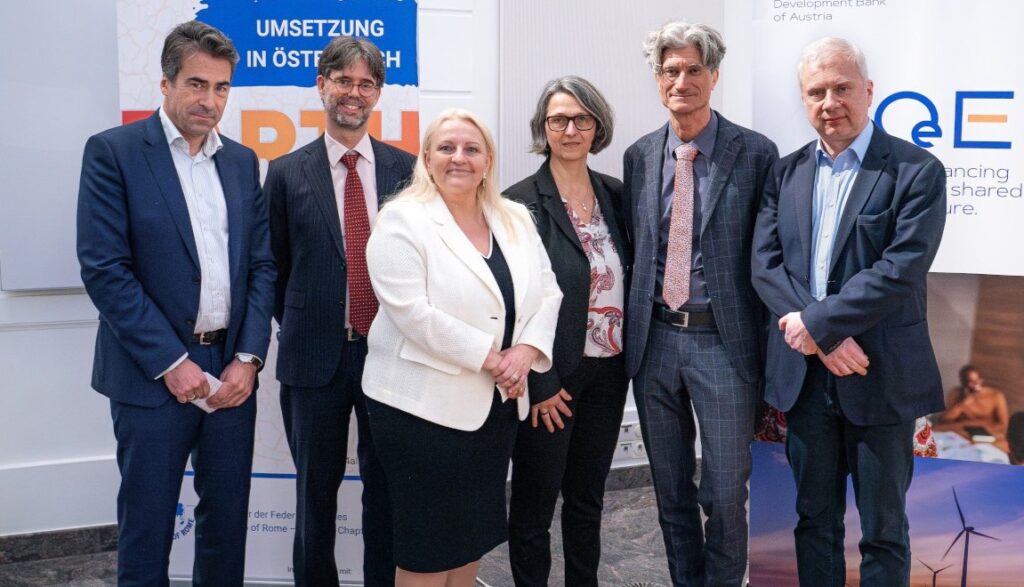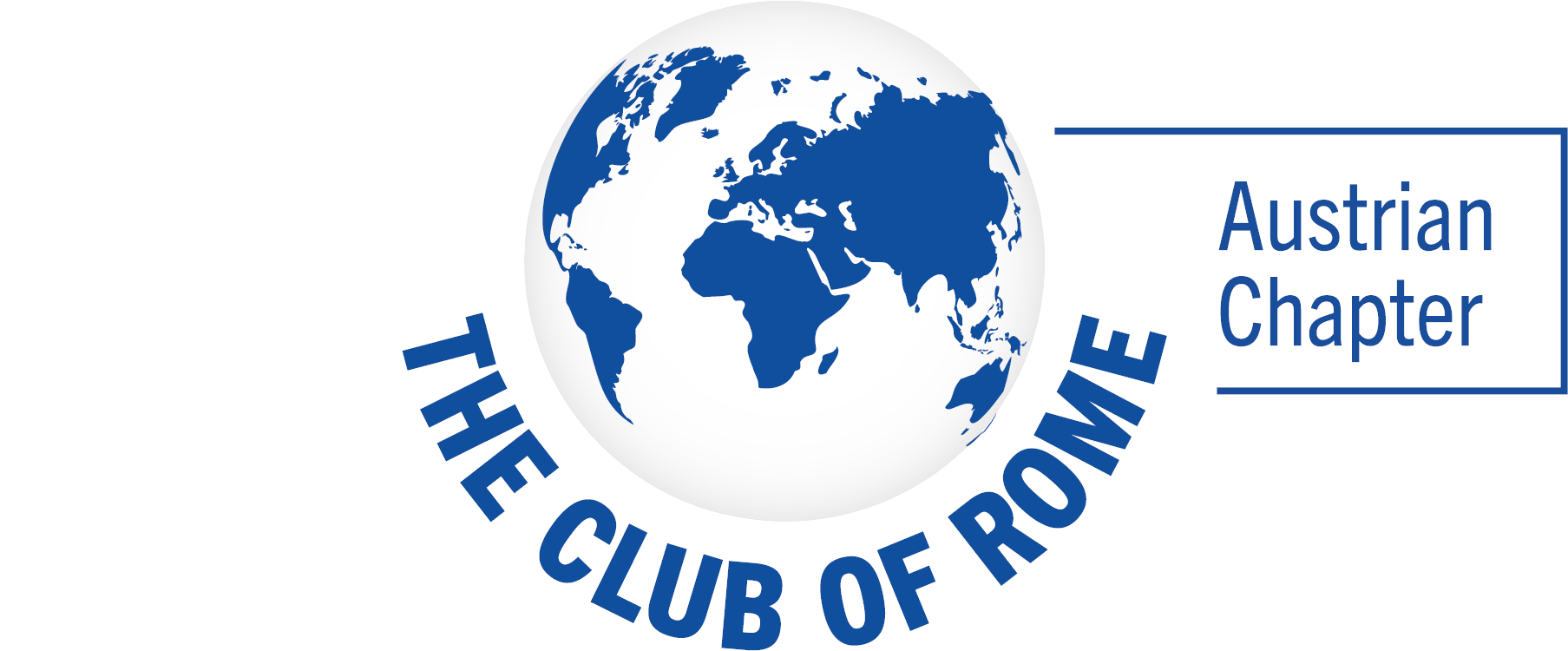Part 2 of our follow-up report on the event on poverty turnaround on April 2, 2024: There is an urgent need for action on sustainable solutions to the debt issue and the economic-ecological-social transition in low-income countries. The complex topics were illuminated in two discussion rounds with various experts.

The first panel,
was hosted by Birgit Niessner. This first expert round focused particularly on the debt relief issue. How does the international financial system need to be transformed so that low-income countries can tackle the dual challenge of poverty and climate change?
Regarding the topic of debt traps in low-income countries, Christian Just from the International Monetary Fund (IMF) is virtually connected from Washington. He sees debt relief as a “possible measure,” but he notes that debt levels are back to where they were before within a few years. Wolfgang Bergthaler, Assistant General Counsel at the IMF, also based in Washington, agrees with Just and emphasizes: “There is no bankruptcy law for government debt.” Therefore, solid macroeconomic policies are ultimately needed in each country.
Gunther Beger, Managing Director of UNIDO, discusses on-site in the panel and describes the situation as “devastating,” where “3.3 billion people live in countries where more money is spent on debt repayment than on education and health combined.” According to Beger, a “vicious cycle” has emerged in these regions, resulting in much less money available for education, health, investments in infrastructure, and industrialization measures.
Martina Neuwirth, Senior Expert for Development Finance at the Vienna Institute for International Dialogue and Cooperation (VIDC), emphasizes: “The countries of the Global South are incurring more and more debt—and this is, of course, also due to global inequalities, which are often structurally rooted in the colonial era.” To break out of this vicious cycle, we must finally establish global mechanisms that also involve private creditors more, such as a bankruptcy procedure for states. There must also be fairer international rules in the tax area, as the poorest countries in particular still generate too few revenues—most of which are then used for debt repayment instead of poverty alleviation.
Irene Giner-Reichl, former Austrian ambassador and expert in development policy, raises the question of what exactly the goal of the international financial system is—particularly regarding debt relief, but also in relation to the Earth4All report and climate goals. She notes that of the fortunately significantly increased investments in renewable energy and energy efficiency, around 15 percent globally go to emerging and developing countries, excluding China. The largest share of this 15 percent goes to India and Brazil. This makes it clear that large parts of the world, especially the poorest, do not receive these investments. If we want to achieve climate goals, it is essential that more emerging and developing economies build their infrastructure in the renewable energy sector. In short, investments need to be significantly increased and ideally grow sixfold. Giner-Reichl also emphasizes that discrimination and disadvantages compound. Women play an enormously important role in achieving climate goals, as they continue to be disproportionately affected by energy poverty. However, in many poor—and not so poor—areas of the world, it remains difficult or significantly challenging for them to access credit.

The second panel,
moderated by Gunter Schall, poses the question of how global trade agreements need to be transformed to support low-income countries—especially regarding the exchange of green technology.
Do we still need development cooperation, or can we manage without it? What opportunities does a technology transfer, particularly in the area of green technologies, bring? Time is running out. Without prompt strategic decisions, the situation in many countries will worsen due to the consequences of the climate crisis.
Alexandra Strickner from the Center for Everyday Economics suggests that Austria should more strongly influence the content and direction of European trade policy, with the aim of prioritizing social and ecological concerns. Currently, the EU is trying to create frameworks through trade agreements that make it easier to access raw materials while simultaneously securing the development of EU industries, such as in the energy transition, by allowing protective measures against cheap imports. In contrast, the EU often opposes the preservation and expansion of political leeway for countries in the Global South. For instance, the EU tries to restrict localization requirements in public procurement (Buy Local policies) through agreements in trade deals. From the perspective of these countries, however, such measures are essential to developing local industries or securing a local economy or technology transfer.
Erwin Künzi from the Austrian Development Agency (ADA) explains that innovations by companies that have been developed with the support of public funds should not be completely protected as intellectual property. Instead, the public sector, which enabled the innovation, should be able to use and disseminate it.
Holger Hestermeyer from the Diplomatic Academy argues for cautious rethinking. On the one hand, it is becoming increasingly clear that the global system of intellectual property protection is fundamentally in need of reform. On the other hand, a “knowledge industry” has developed based on this system, which, for example, ties the sharing of unpublished additional knowledge to patent licenses. Within the framework of a global reform, this infrastructure could be preserved by, for instance, reducing the duration of patents. He also advocates for strengthening rule-based trade and reforming the rules, rather than abandoning the trade system as a solution to global problems.
Werner Raza from the ÖFSE is also certain: “Trade alone won’t solve it.” While comprehensive trade can bring advantages under certain conditions, it is only one element in a broader process of economic development, which depends on numerous prerequisites and factors. In the context of catching up with economic development, the use of protective tariffs and similar measures is therefore also permissible. For so-called infant industries, at least in certain countries, protective tariffs and other industrial policy measures could be important elements of a forward-looking economic policy. However, this must be accompanied by a comprehensive North-South technology transfer.
In summary, it can be noted that there is an urgent need for action in low-income countries, particularly in the Global South, regarding a sustainable solution to the debt issue, which must take into account not only economic but also climate-related, ecological, and social transitions. There is also consensus that low-income countries must be comprehensively supported and protected through various measures—regarding trade agreements and the use of innovations in connection with supported technology transfer. This needs to be discussed much more publicly.
